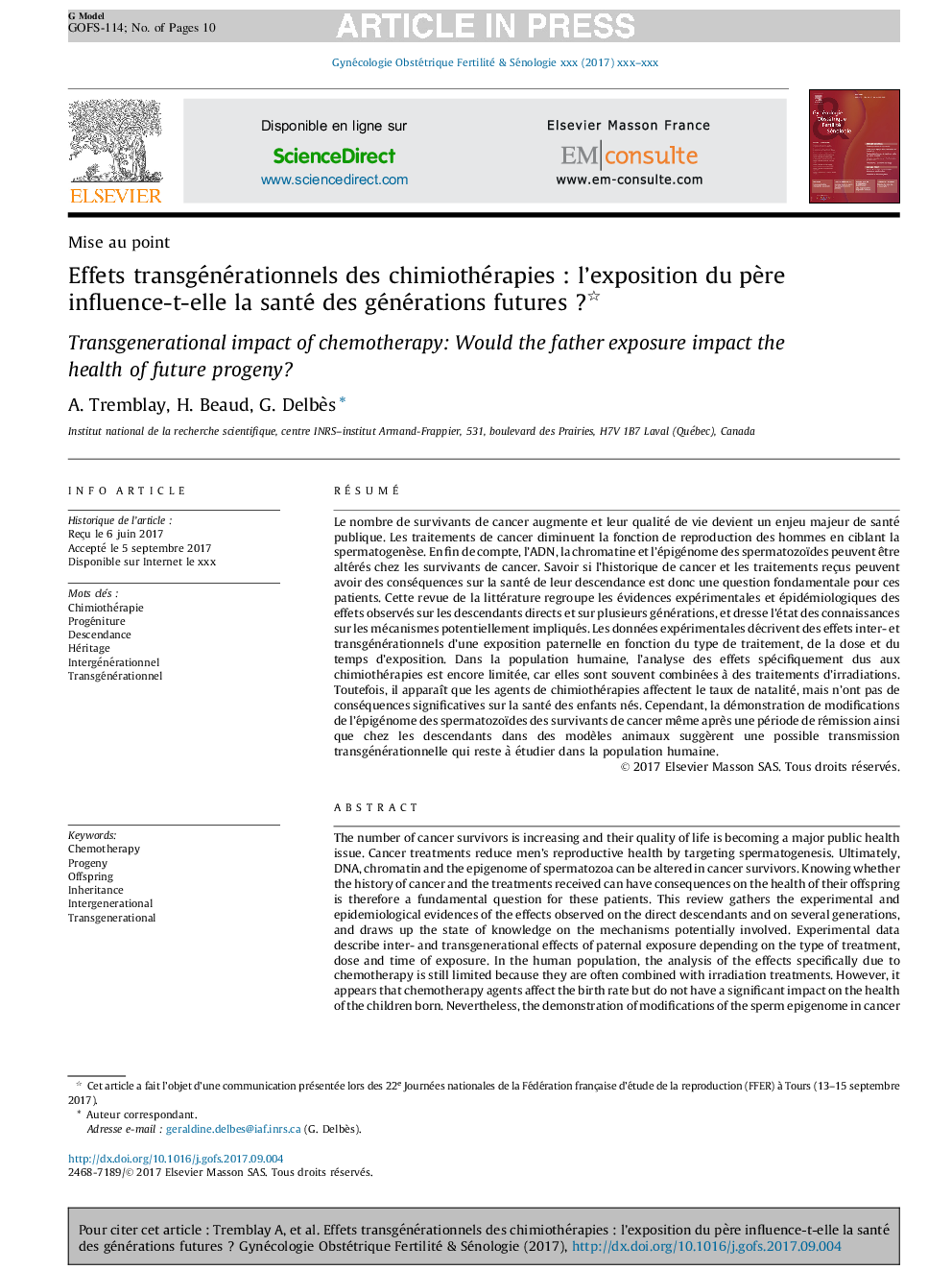| Article ID | Journal | Published Year | Pages | File Type |
|---|---|---|---|---|
| 8926345 | Gynécologie Obstétrique Fertilité & Sénologie | 2017 | 10 Pages |
Abstract
The number of cancer survivors is increasing and their quality of life is becoming a major public health issue. Cancer treatments reduce men's reproductive health by targeting spermatogenesis. Ultimately, DNA, chromatin and the epigenome of spermatozoa can be altered in cancer survivors. Knowing whether the history of cancer and the treatments received can have consequences on the health of their offspring is therefore a fundamental question for these patients. This review gathers the experimental and epidemiological evidences of the effects observed on the direct descendants and on several generations, and draws up the state of knowledge on the mechanisms potentially involved. Experimental data describe inter- and transgenerational effects of paternal exposure depending on the type of treatment, dose and time of exposure. In the human population, the analysis of the effects specifically due to chemotherapy is still limited because they are often combined with irradiation treatments. However, it appears that chemotherapy agents affect the birth rate but do not have a significant impact on the health of the children born. Nevertheless, the demonstration of modifications of the sperm epigenome in cancer survivors, even after a period of remission, as well as changes in the sperm of the progeny in animal models, suggests a possible transgenerational transmission that remains to be studied in the human population.
Keywords
Related Topics
Health Sciences
Medicine and Dentistry
Obstetrics, Gynecology and Women's Health
Authors
A. Tremblay, H. Beaud, G. Delbès,
